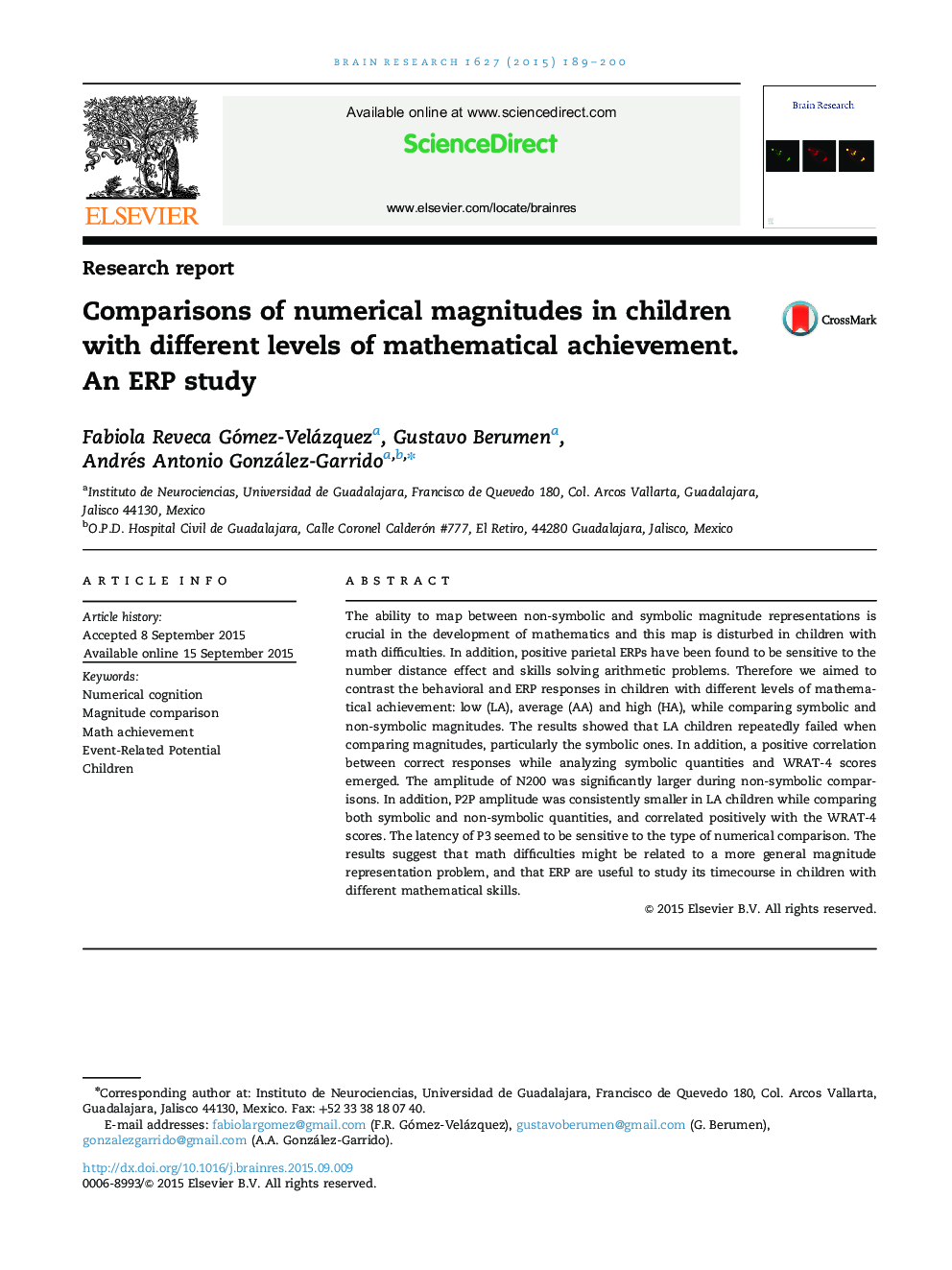| کد مقاله | کد نشریه | سال انتشار | مقاله انگلیسی | نسخه تمام متن |
|---|---|---|---|---|
| 4323760 | 1613812 | 2015 | 12 صفحه PDF | دانلود رایگان |

• Children with low mathematical achievements (LA) show lower IQ than their peers.
• LA show significantly lower working memory and reading speed levels than controls.
• ERPs reflect that LA children have difficulties when comparing numerical magnitudes.
• P3 is sensitive to the ratio and type of numerical comparison.
The ability to map between non-symbolic and symbolic magnitude representations is crucial in the development of mathematics and this map is disturbed in children with math difficulties. In addition, positive parietal ERPs have been found to be sensitive to the number distance effect and skills solving arithmetic problems. Therefore we aimed to contrast the behavioral and ERP responses in children with different levels of mathematical achievement: low (LA), average (AA) and high (HA), while comparing symbolic and non-symbolic magnitudes. The results showed that LA children repeatedly failed when comparing magnitudes, particularly the symbolic ones. In addition, a positive correlation between correct responses while analyzing symbolic quantities and WRAT-4 scores emerged. The amplitude of N200 was significantly larger during non-symbolic comparisons. In addition, P2P amplitude was consistently smaller in LA children while comparing both symbolic and non-symbolic quantities, and correlated positively with the WRAT-4 scores. The latency of P3 seemed to be sensitive to the type of numerical comparison. The results suggest that math difficulties might be related to a more general magnitude representation problem, and that ERP are useful to study its timecourse in children with different mathematical skills.
Journal: Brain Research - Volume 1627, 19 November 2015, Pages 189–200